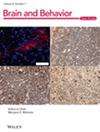The Effect of Evaluating Self's Emotions on Frontal Alpha Asymmetry
Abstract
Purpose
In research to assess emotions from biometric signals, participants are asked to evaluate the emotions they subjectively experienced to confirm whether the assumed emotions were actually elicited. However, the evaluation of emotion may influence the biometric signals related to the emotion itself. While such evaluative processes may function as a form of emotion regulation, which is known to modulate emotional experiences, the neural mechanisms and effects of evaluation itself remain unclear. Specifically, the temporal dynamics of how these evaluations affect emotion-related brain activity in electroencephalography (EEG) have not been investigated. Based on theories of emotional processing and self-focused attention, we hypothesized that emotion evaluations would enhance emotional processing as reflected in frontal alpha asymmetry (FAA) through both immediate attentional effects and sustained self-focused attention.
Method
We measured a 29-channel EEG in 40 healthy participants who were presented with unpleasant and highly arousing images. Participants were assigned to either an experimental group that performed the task with subjective evaluation followed by without subjective evaluation, or a control group that performed the task without subjective evaluation twice. This design allowed us to examine both immediate effects of evaluation and its lasting influence on subsequent emotional processing.
Finding
The results revealed that FAA was significantly lower during emotional evaluation compared to conditions without subjective evaluation, particularly during stimulus processing (300–500 ms). This early modulation suggests that evaluation automatically engages attentional processes, may reflect enhanced negative emotional processing as well as the activation of behavioral inhibition system through self-focused attention.
Conclusion
This study demonstrates that the emotional evaluation procedure itself can significantly alter early emotion-related brain activity, providing insights into how self-focused emotional evaluation engages both emotional and motivational processes. These findings suggest the need for methodological reconsiderations in EEG emotion estimation studies.


 求助内容:
求助内容: 应助结果提醒方式:
应助结果提醒方式:


